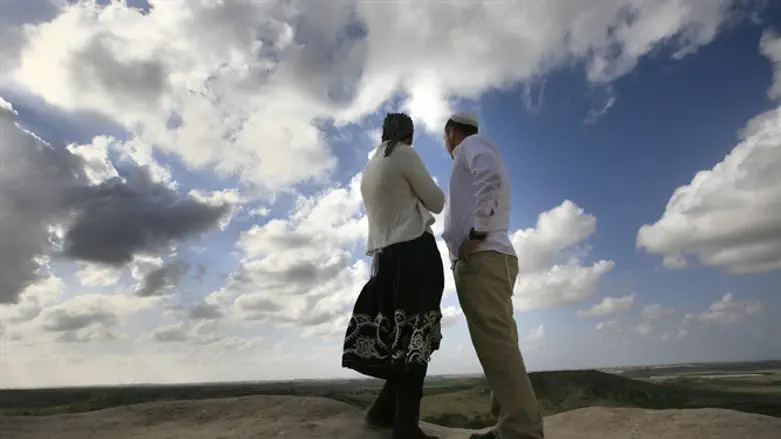
“In the merit of emunah/faith, our forefathers were redeemed from Egypt”.
Israel’s faith in the redemption for 210 years gained mass and momentum, and when Moshe heralded the imminent redemption, that faith turned into bitachon/confidence in the upcoming redemption and into loving devotion, “How you went after Me in the desert, in an unplanted land.” The faith of Israel in the Mashiach throughout the long exile – close to two thousand years – is vital in order to survive the hardships.
Now, however, when the redemption is imminent, we have to move forward from emunah to bitachon. Moreover, because the final redemption is predicated on bitachon, passive trust that G-d alone will redeem us and we will be drawn to follow Him with love - is not enough. Instead, we must progress to active confidence that God gives us the strength to bring the redemption. We must devote ourselves to that goal with all our might.
From the standpoint of emunah, Mashiach can come today – “I will wait for him on any day that he comes” – but it is not vital. Confidence in the imminent redemption turns the coming of Mashiach today from a pleasant possibility to a vital imperative. Mashiach must come today, or as the Lubavicher Rebbe would say, “Mashiach Now!” Thus, I must do all that I can to achieve that goal.
From where do the confidence and the sense of urgency to bring Mashiach come? The Jewish heart can bear paradox, as the Zohar says, “Crying is fixed in the heart on one side and happiness is fixed in the heart on the other side.” Here as well, bitachon stems from two opposite experiences.
On the one hand, one looks around and feels that it is impossible to suffer even another moment in exile. The first sign of redemption is the feeling that one has no more strength to bear the exile, as Rebbe Bunim of Pashischa said of the verse “And I took you out from under the suffering of Egypt” – the beginning of redemption is the emergence from the willingness to suffer Egypt, which awakens the true cry of “Ad mosai?”/Until when?
On the other hand, alongside the feeling that the exile has become absolutely unbearable, the feeling of “the time has come” awakens the recognition that the “time of lovers” has come - that the time is ripe for full actualization of the love between God and the Nation of Israel, with the true and full redemption.
These two feelings – great urgency, as the exile is unbearable, alongside the strong desire and confidence in the possibility of redemption, “because the time has come” – merge and become the motivation for intense action to hasten the redemption. (While the first feeling alone can trigger a sense of despair and even anger toward Heaven, the second feeling alone can cause a negative and erroneous attempt to force the end, created by an immature ‘illusion of grandeur’).
An example of these two feelings acting simultaneously is the case of a young man and a young woman who reach the stage at which they feel that life unmarried is unbearable. Simultaneously, they feel that it is “a time for lovers” and positive emotions for the proposed match flourish. This combination motivates them both to do all that they can to actually proceed into marriage.
The transformation to active confidence is the beginning of our final redemption. It is the feeling that we can no longer bear the exile (and we can no longer suffice ourselves with partial achievements) alongside the feeling that we have matured and are prepared for the renewal and actualization of our bond of love with God. We are confident that God, in His love for us, will certainly give us the strength to bring the Mashiach today.
